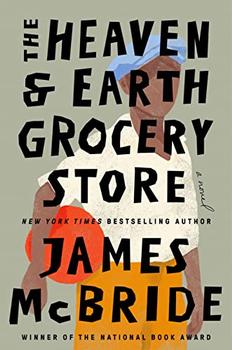Summary | Excerpt | Reading Guide | Reviews | Beyond the Book | Read-Alikes | Genres & Themes | Author Bio

A Novel
by James McBrideThis article relates to The Heaven & Earth Grocery Store
James McBride's novel The Heaven & Earth Grocery Store follows a community as they work together to save a young deaf Black boy, Dodo, from unjust institutionalization in 1930s America. Though Dodo's disability is physical, the state authorities are determined to place him in a mental institution called Pennhurst. In the context of American history, this was not an uncommon phenomenon. The conditions for mentally and physically impaired people in the 1930s were poor to say the least, and McBride put special care into investigating this issue in his novel. Speaking to Scott Detrow of NPR, the author states, "I was always fascinated with the idea about how these kids who are, quote-unquote, 'disabled' end up in insane asylums in the early times, in the '20s, '30s, '40s and '50s and so forth." Understanding these conditions can shed light on the ethos behind the characters' desperate need to save Dodo from Pennhurst.
Before the enactment of the Americans with Disabilities Act (ADA) in 1990, people with disabilities relied solely upon The Rehabilitation Act of 1973 — specifically, Section 504, which protected the rights of people with disabilities to employment and access to any facility or program that received federal funding — though it was only implemented in 1977 after protests and demonstrations by disability rights activists. Before the 1970s, protection for individuals with disabilities in America was nearly nonexistent and inaccessibility made life profoundly difficult. The National Museum of American History Behring Center explains that before the ADA, "[a]ny place of employment could refuse to hire a person just because of his/her disability," "[p]eople using wheelchairs who wanted to ride a bus or train would need to abandon their wheelchairs," and "[b]ecause the restrooms on trains were not accessible, people often had to wear precautionary diapers when they traveled." These are but a few examples of the living conditions for those with a disability in pre-ADA America. Several characters in McBride's novel suffer pronounced physical disabilities, most frequently some sort of limp. Many flock to one poor shoemaker in Chicken Hill who specializes in shoes that compensate for a limp — a detail that emphasizes the lack of care available during this time period.
In the 1930s, it was not uncommon to see physically disabled individuals placed in mental institutions. During the Depression, institutions grew "in size and number" due to a "[l]ack of community services and negative attitudes about persons with disabilities [resulting] in an increased demand for institutional placement," according to the Minnesota Governor's Council on Developmental Disabilities. Impoverished families often pushed for the institutionalization of their physically disabled family members in order to be released from the economic burden of their medical care. Regardless of what type of care would have been appropriate for the patients placed in such institutions, the conditions there were nearly unlivable. In 1930, the American Medical Association appointed a committee to investigate several public and private institutions. The committee "exposed the dire conditions in the mental hospitals, especially the public hospitals, including overcrowding, understaffing, rampant inappropriate political influence in some places, and lack of treatment for patients," according to the American Psychiatric Association. The leader of the committee, Dr. John Grimes, "described a dismal picture of patients in rockers in bare dormitories 'rocking slowly hour by hour, every week, every year until death.'"
Filed under People, Eras & Events
![]() This "beyond the book article" relates to The Heaven & Earth Grocery Store. It originally ran in September 2023 and has been updated for the
August 2023 edition.
Go to magazine.
This "beyond the book article" relates to The Heaven & Earth Grocery Store. It originally ran in September 2023 and has been updated for the
August 2023 edition.
Go to magazine.
Courage - a perfect sensibility of the measure of danger, and a mental willingness to endure it.
Click Here to find out who said this, as well as discovering other famous literary quotes!
Your guide toexceptional books
BookBrowse seeks out and recommends the best in contemporary fiction and nonfiction—books that not only engage and entertain but also deepen our understanding of ourselves and the world around us.